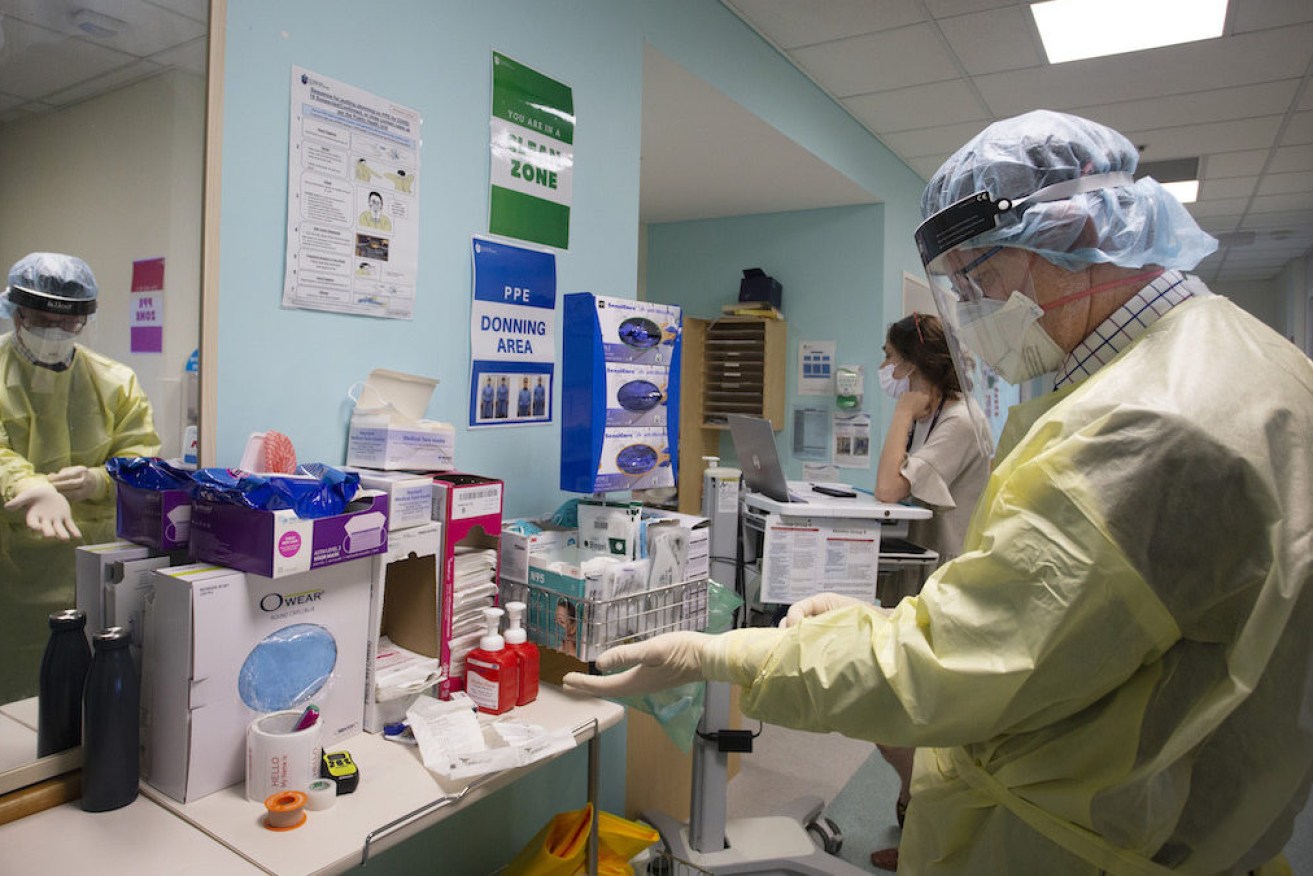As Omicron cases soar, what does that mean for our hospitals?


The findings reinforce the need for adequate resources for ICUs, especially in times of high demand. Photo: Getty
New South Wales recorded more than 11,000 cases of COVID-19 on Tuesday, as well as 625 people in hospital care and 61 people in ICU.
Prime Minister Scott Morrison soon fronted the press and ensured the public that there is “ample capacity in our hospital system” to deal with the current outbreak.
And although there was plenty mention of the risks of Omicron in Australia, the same couldn’t be said about Delta – something experts want you to stay on top of.
What are the numbers telling us?
Epidemiologist Professor Mary-Louise McLaws explained there can be a lag of 10 to 14 days from when cases are reported to subsequent hospitalisation.
“If you look at the 20th of December to the 29th – we’ve gone from 261 hospitalisations to 625. That’s a big increase in just nine days. It surged dramatically,” Professor McLaws told The New Daily.
And if you look at the patients in intensive care, the numbers in NSW have almost doubled since December 20, from 33 patients to 61.
“It is potentially indicative of an increase in Delta cases,” Professor McLaws said.
It’s why she believes those in charge should do a better job at educating the public when it comes to daily cases.
“Quite frankly, just giving us the idea of hospitalisation and ICU admissions is not enough. We need to know how many have Delta and how many have Omicron,” she said.
Delta driving hospitalisation
Research from August found that patients with the Delta variant had more than two times the risk of hospitalisation than patients with the Alpha variant.
But people with Omicron are up to 70 per cent less likely to require hospital care.
To put that in perspective, epidemiologist Tony Blakely wrote for the Sydney Morning Herald: “With Delta, we expect something like 350 to 500 people in hospital on any given day following an announcement of 1000 new cases about two weeks prior.
“With Omicron, we are heading to something like 100 people in hospital on any given day for 1000 daily cases two weeks earlier.”
Professor Catherine Bennett, chair in epidemiology at Deakin University, stressed that the Delta outbreak is most likely responsible for rising hospitalisation numbers.
Although there’s been a lot of noise regarding Omicron case numbers, Professor Bennett said we’ve yet to see what those case numbers translate to over the long term.
“And that’s the thing. Omicron is responsible for at least 80 per cent of cases in NSW now, but they’re not the ones ending up in hospital.”
That said, Omicron still poses a tremendous risk to hospitals.
Professor Bennett gave the example of someone in labour testing positive for the Omicron variant in a hospital setting.
Staff would have to manage the risk of infection, putting more pressure on an already chronically fatigued workforce.
The Omicron variant may be less severe than Delta, but it still poses a threat to patients who are vulnerable to mild infectious diseases.
“That’s going to be a rising challenge if our Omicron rates continue to climb,” Professor Bennett said.
“So that’s why it’s so important that we try and keep numbers down.
“Don’t say, ‘Oh, who cares? It’s just the Omicron variant’. Omicron still matters – it will put unwell and vulnerable people at risk.”
Looking forward
Gerard Hayes, the NSW state secretary and national president of the Health Services Union, said the only way we can help frontline workers and limit the pressure put on hospitals is to be fully vaccinated.
“The vaccination stats are real and they take the pressure off – that’s the main thing,” Mr Hayes told The New Daily.
“But we need more people vaccinated. The pressure will now come from the unvaccinated people becoming hospitalised.
“If we can proactively deal with that from a clinical perspective as opposed to all the nonsense floating around then I think we can start to move forward.”
Part of being vaccinated means getting your booster, too.
As the booster dose increases your protection against viruses that cause COVID-19, that means it will help quell the Delta outbreak and reduce the risk of symptomatic infection of Omicron.
Professor Bennett also pointed to recent findings that catching Omicron might boost our defences against Delta.
“Omicron, whichever way you look at it, will speed up the immunity acquired in people who aren’t vaccinated,” she explained.
“If Omicron infections could partially cover Delta, then we might start to see a decline in the number of unvaccinated people ending up in ICU.”
As of Wednesday, 1177 people infected with COVID-19 were in hospitals across Australia, with 127 people in ICU.
Based on data from state and federal governments and the Australian and New Zealand Intensive Care Society, The Age reports that Australia has a maximum ICU capacity of 3905.








